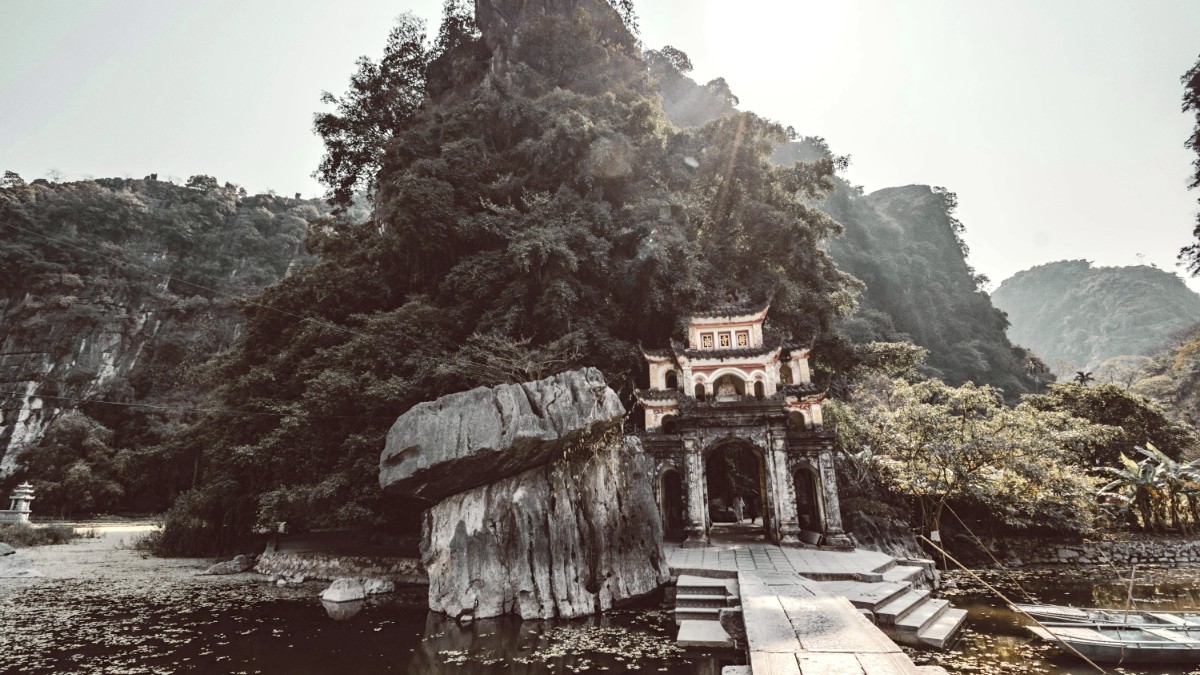
North Central Vietnam, Vietnam
Tam Coc is part of the Trang An Scenic Landscape Complex, an UNESCO World Heritage site dedicated to protecting its geological, ecological, aesthetic, and cultural values.
Waste management efforts are growing in Vietnam. Help by minimizing your waste, avoiding single-use plastics, and disposing of trash properly.
Be mindful of your water usage at your accommodation and during activities. Support businesses that implement water-saving practices to preserve local resources.
Make conscious choices during your travel to support environmental responsibility and minimize your footprint.
Look for accommodations that actively promote sustainable practices. Many homestays, by their nature, are often more eco-friendly due to their smaller scale and reliance on local resources.
Air travel accounts for significant carbon emissions. Consider offsetting your flight emissions through reputable carbon offset programs. While direct carbon offset options within Tam Coc are limited, local actions count.
When booking tours, choose operators that prioritize minimizing environmental impact, respecting local communities, and contributing to conservation efforts. Inquire about their practices before booking to ensure alignment with your values.
Waste management is a growing concern with increased tourism. Recycling infrastructure is limited, especially outside major cities. Your actions can lessen the burden on local waste systems.
Trang An Scenic Landscape Complex is a World Heritage site, emphasizing its unique value.
Learn MoreCuc Phuong National Park safeguards biodiversity and endangered species.
Explore ParkMinimize plastic use and choose eco-friendly transport to support Tam Coc's natural beauty.
Your travel choices can have a direct and lasting impact on the local economy. Choose practices that support local communities and promote equitable distribution of tourism benefits.
Efforts are underway to preserve the traditional way of life, historical sites, and unique cultural practices, especially within the Hoa Lu and Trang An areas. These initiatives protect the authenticity of the region's heritage.
Small gestures can bridge communication gaps.
Be mindful of people's privacy and avoid intrusive photography. Always prioritize respect over getting a "perfect" shot, notably in sensitive situations.
When visiting temples or pagodas, specific customs are observed to show reverence.
Support organizations dedicated to conservation and ethical travel practices, contributing to the well-being of local communities and ecosystems.
Choose operators like G Adventures for responsible travel experiences.
Consider supporting conservation efforts through organizations like The Rainforest Site (GreaterGood).
Seek out ways your visit can directly benefit local populations.
Engage respectfully with locals by observing customs and asking permission.
Your travel choices hold a direct and lasting impact on the local economy. Opt for practices that support local communities and promote an equitable distribution of tourism benefits.
Many homestays in Tam Coc are family-run. Choosing these accommodations directly supports local households, providing them with income.
Your payments directly contribute to the local economy, helping families thrive and maintain their traditions.
These initiatives empower communities to benefit directly from tourism, fostering local ownership and pride.
If you wish to help, donate to reputable local charities or community projects that address root causes rather than giving direct handouts.
Support established NGOs or community projects with a proven track record of positively influencing local communities.
Prioritize contributions that foster sustainable development and self-sufficiency within the community.